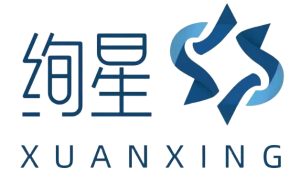In modern enterprise management, personnel compensation management is a crucial business.
It not only concerns the vital interests of employees but also directly affects the overall operational efficiency and competitiveness of the enterprise. A scientific, reasonable, and fair compensation management system can stimulate employees’ work enthusiasm, enhance the cohesion of the enterprise, and thus promote the sustainable development of the enterprise.
The core objective of personnel compensation management is to ensure the fairness and competitiveness of the compensation system. This requires enterprises, when formulating compensation policies, to consider both internal fairness, that is, employees with different positions, capabilities, and contributions should receive corresponding compensation rewards; and external competitiveness, that is, the enterprise’s compensation level should be in line with the market to attract and retain outstanding talents.
Specifically, the personnel compensation management business mainly includes the following aspects:
First, the design and optimization of the compensation system. Enterprises need to design a scientific and reasonable compensation system according to their own business characteristics, development strategies, and market environment. This includes determining the compensation structure (such as basic salary, bonus, benefits, etc.), formulating compensation standards, setting up a compensation adjustment mechanism, etc. At the same time, enterprises also need to regularly evaluate and optimize the compensation system to ensure that it keeps pace with the times and meets the needs of employees and the enterprise.
Second, the daily management of compensation. This includes the calculation, payment, adjustment of employees’ compensation, and related tax processing. Enterprises need to establish an efficient compensation management process to ensure the accurate payment of compensation and comply with relevant laws and regulations to avoid compensation disputes.
Third, the linkage between compensation and performance. In order to motivate employees to better complete their work, enterprises need to link compensation to employees’ performance. This requires enterprises to establish a fair and transparent performance evaluation system to ensure that employees’ compensation matches their contributions.
Finally, the communication and feedback of compensation. Compensation management is not only the work of the human resources department but also requires full communication and feedback with employees. Enterprises need to explain the principles and standards of the compensation system to employees, listen to their opinions and suggestions, and answer employees’ questions in a timely manner to ensure the fairness and transparency of compensation management.
To sum up, personnel compensation management is a complex and important business. It requires enterprises to consider both internal fairness and external competitiveness; to ensure the accurate payment of compensation and also motivate employees to better complete their work. To achieve this goal, enterprises need to establish a scientific, reasonable, and fair compensation management system and continuously optimize and improve it. At the same time, enterprises also need to have full communication and feedback with employees to ensure the effectiveness of compensation management and employees’ satisfaction. Only in this way can enterprises attract and retain outstanding talents, improve overall operational efficiency, and achieve sustainable development.




